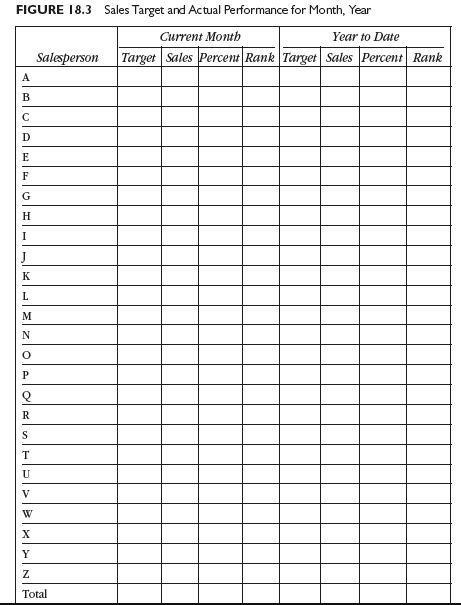Some companies do not use targets. In certain industrial-goods categories, for instance, it is difficult to obtain accurate sales estimates; thus, targets, if used, are based on subjective judgments. Numerous executives prefer not to use targets if it means basing them on “guesstimates.” In other situations, it is possible to obtain accurate sales estimates, but executives, perhaps wrongly, contend that obtaining and analyzing other data necessary for target determination means inordinate expenditures of time and money. No target should cost more than it is worth, but it is difficult to visualize a situation in which accurate targets coupled with good administration would not increase selling efficiency.

In some companies, the fact that target determination requires using statistical techniques is the reason given for nonuse of targets. The fear is that sales personnel will not accept targets prepared by hard-to-explain techniques. In other instances, there are difficulties in arriving at fair weights for territorial potential, competitive position, coverage difficulty, and salesperson ability. Thus, when targets are tried, they may be set too high, which could cause high-pressure selling, or too low, which could provide insufficient incentive.
Some executives oppose targets on the grounds that they place too much emphasis upon making sales. This may be a legitimate criticism of sales volume targets, but not of all targets. Other executives object to the word “target,” which they say has negative connotations, and prefer to assign “objectives.” These executives, in other words, use targets but under another name.
One situation exists where targets, in the normal sense, are not appropriate. It occurs when a product is in short supply. In such cases, most managements believe that it is wise to divide the available supply equitably among customers. In sellers’ markets, the allocation substitutes for the target, which characteristically is appropriate for use only in buyers’ markets.
Source: Richard R. Still, Edward W. Cundliff, Normal A. P Govoni, Sandeep Puri (2017), Sales and Distribution Management: Decisions, Strategies, and Cases, Pearson; Sixth edition.

I am glad to be one of many visitants on this great website (:, thankyou for posting.
Thank you, I’ve just been searching for information about this subject for ages and yours is the best I’ve discovered so far. But, what about the conclusion? Are you sure about the source?